Of all the nuances of grammar in the English language, this is my greatest pet peeve. No, it’s not “its vs. it’s.” It’s not “there, their, and they’re.” It’s not even the Oxford comma.
Let’s talk conditional sentences.
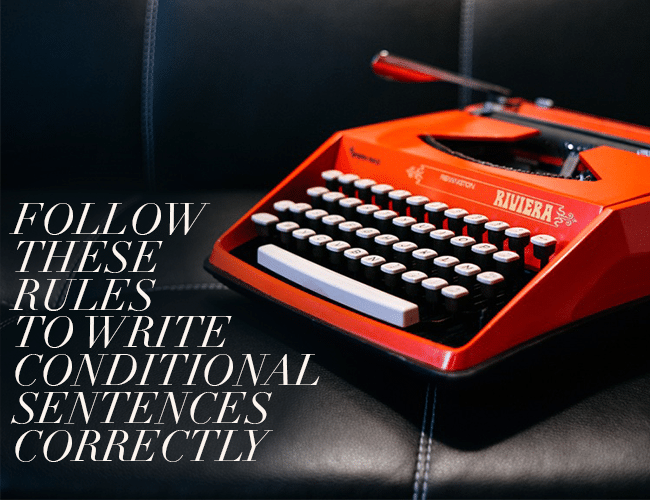
What Is a Conditional Sentence?
A conditional sentence is a sentence that describes a hypothetical situation, like an action or event, and the result of that situation.
Confused? Here’s an easy way to think about it: a conditional sentence can usually use the words “if” and “then.” Here’s an example:
If a zombie apocalypse occurs, then I want to survive.
Real vs. Unreal Conditional Sentences
There are two major types of conditional sentences, and you use them based on how likely the hypothetical situation is to occur.
Real conditional sentences deal with factors that are certain.
If I go to the hardware store today, then I will get a crowbar.
It’s very possible that I’ll actually go to the hardware store today, and when I'm there, I will definitely get a crowbar. So this is a real conditional sentence.
On the other hand, unreal conditional sentences deal with imaginary situations, things that aren’t likely to happen.
If their chainsaws were not so expensive, then I would get one of those, too.
The problem is that chainsaws are expensive, so I definitely won’t get one. Since finding a low-priced chainsaw at that hardware store is an imaginary situation, this conditional sentence is unreal.
Formulas for Writing Conditional Sentences
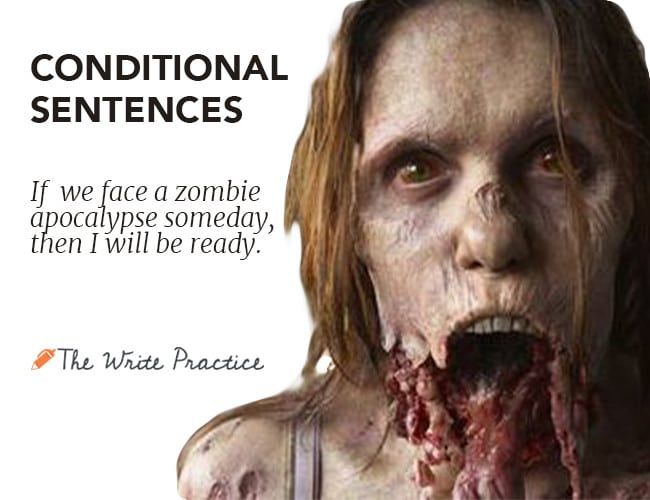
Writing a conditional sentence is like following a formula. Try these common ones out for size:
The Present Real Conditional: If [present situation], then [present result]
If I buy hefty tools, I put them in my zombie preparedness kit.
Note: you can often omit the “then” from conditional sentences. Most of the examples in this post work with or without the “then.” Most writers will omit the “then” in almost all their conditional sentences for simplicity sake.
The Present Unreal Conditional: If [simple past situation], then [conditional result].
If I bought a chainsaw, then I would put it in my zombie preparedness kit, too.
The Past Real Conditional: If [simple past situation], then [simple past result].
Before I created my zombie preparedness kit, I avoided watching zombie movies because if I watched them, then I got really scared.
The Future Real Conditional: If [present], then [future].
If one day we face a zombie apocalypse, I will be ready.
Reversing “If and Then” Order
All formulas for conditional sentences hold true if you reverse the if/then clauses:
I would buy a chainsaw if I could afford it.
Or even if you remove the words “if” and “then” altogether:
Had I a chainsaw, I would feel more prepared.
You Can Use “When” in Conditional Sentences, Too
Using “when” instead of “if” will change the meaning of these sentences, but they’re still conditional sentences either way. For example:
When I buy hefty tools, I put them in my zombie preparedness kit.
When Things Go Wrong With Conditional Sentences
Have you ever heard someone say, “If I would have”?
If I would have known the chainsaws were on sale last week, then I would have purchased one.
This is so wrong.
I hear it all the time, but there’s a major problem here. Remember all those formulas we talked about? Here’s the one we need now:
The Past Unreal Conditional: “If [past perfect situation], then [conditional past result].”
Or to put it more simply, “If I had [past participle], then I would have [past participle].”
“Would have purchased” is the conditional past tense of the verb “to purchase.” It fits perfectly after “then.” But “would have known” is the conditional past, too, so it doesn’t fit. The past perfect of “to know” is “had known.”
So the correct sentence is:
If I had known the chainsaws were on sale last week, then I would have purchased one.
Bonus! More Misused Conditional Sentences
Here’s one more instance where people commonly (but mistakenly) use the conditional past tense:
I wish I would have known about the sale at the hardware store!
Wrong!
Like the if-clauses above, “I wish” must be followed by the past perfect. So if you realize you missed out on a great opportunity to beef up your zombie preparedness kit and you regret not snagging a deal on that chainsaw last week, you would say,
I wish I had known about the sale at the hardware store!
This is the correct version.
And with that, you know all you need to if you never want to misuse conditional sentences again! If I were standing next to you, then I'd give you a high five! (See what I did there?)
How about you? Do you enjoy using conditional sentences in writing? Let us know in the comments section.
PRACTICE
Write a scene about a regretful character. Maybe she did something she shouldn’t have done. Maybe he didn’t do something he should have done. If something had happened, then what would have happened? What does this person wish they’d done differently?
Write about your character’s if/then or “I wish” mistake for fifteen minutes, then post your practice in the comments. And if you post, remember to give feedback to your fellow writers.
Bonus: Today, find a real-life if/then or “I wish” mistake. Listen to the conversations around you, pay attention to the lyrics of songs on the radio, and double-check the newspaper, books on your shelf, and cereal boxes. When you find an instance where the conditional past is misused, share it in the comments.
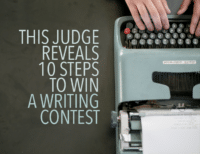
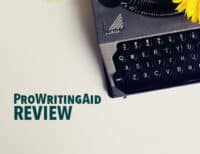
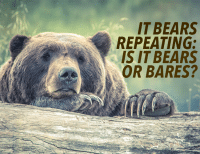
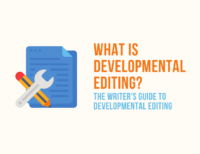



Another is ‘may’ vs. ‘might’ – I keep hearing people talk about things that could have happened but didn’t and saying they ‘may have’ happened. The only time it’s correct to say something may have happened is when we don’t know whether it happened or not – they mean that it might have happened, as in ‘if the Nazis had invented the atomic bomb first, they might have won World War II.’
That’s a good one! It trips a lot of people up.
This, Jim, is one that I always have to think about. The conditional sentences don’t really cause me any problems. How about conditional sentences and the subjunctive? I too often hear ‘If I was…’ When it should be ‘If I were…’ It grates!
If I were you, I would have written this brilliant post. Since I am not, I just deleted my astute response. I am considering writing a story from my idea box about a former friend who hurt me in high school. If I were Andi, would I care about crushing another ‘s feeling?
Roy Clark in his masterful “The Glamour of Grammar” warns us to avoid “hypergrammar.” He suggests we sound like “prigs ” if we were to use “It is I.” What is your response?
I hear where you’re coming from. When sentences get complex or unwieldy, enforcing correct grammar can make them sound strange and unnatural. I love grammar, and I find it hard to bend the rules even when they start to do more harm than good. But I do have a couple of exceptions:
– I don’t mind ending a sentence with a preposition. That rule is based on French grammar, in which it’s actually impossible to end a sentence with a preposition. I don’t think it enhances clarity to say, “About what are you thinking?” rather than, “What are you thinking about?”
– If you’re writing dialogue, the key is to capture the way that your characters would actually talk. That gives you a decent amount of freedom in what you can do to bend grammar rules. The novel as a whole would need to adhere more closely to correct grammar, but even there, the voice and tone should fit the characters and setting. A story about teenagers in the 23rd century on Mars will probably sound different from a historical political drama, and perhaps grammar (even dated or made-up grammar) will play a part in that.
Bottom line: I agree that it’s good to avoid “hypergrammar.” But loving grammar as I do, I find that a difficult line to walk.
I’m glad you’re confident with conditional sentences! I see “if I would have” so often that I felt it bore explaining. You’re right, though, that the subjunctive gets very tricky for a lot of people. I hear it used incorrectly so frequently that sometimes I have to double-check my own usage. Good idea for a follow-up post!
Awesome. Thank you. And, what a coincidence! My oldest son has problems using those words, in the 1st paragraph, in a sentence. I was going over them with him just yesterday. (Due to his behavior, he has to write a lot of essays)
I’m so glad you found this helpful! Good luck to your son — with both essays and behavior! 🙂
Awwww, thanks.☺
This is an excellent start for me ~ Sorry my 15 minute response will be kept for expansion. IF I didn’t have this plan, THEN I would certainly have shared it.
Great use of a conditional sentence! I’m glad your practice turned into a promising piece!
Shadow watched the girl sleep on the couch. Her chest rose and fell, her breaths coming softly.
The face of the man who’d tried to rape her rose up in his mind in sharp focus. Shadow’s jaw clenched. He’d had his chance to strangle the man—yet he’d restrained himself because the girl had been there, because she had asked him not to.
The look in her eyes as Shadow had gripped the man’s throat…it had chilled Shadow. Because it had reflected who he was inside. Someone capable of killing.
But if he had taken the man’s life, it would not have been without cause.
The girl stirred on the couch. She opened her eyes, revealing soft, bottle-green. “You okay?” she asked.
He laid a hand on her shoulder. “I was just about to leave for work. Rouge is coming by to spend the night.” His mouth tugged in a half-smile. “She likes scary movies, so I’m sure she’s bringing one.”
“Sounds fun,” the girl said, returning his smile.
He squeezed her shoulder and headed for the front door. Just as he’d opened it, the girl said behind him, “Shadow?”
He turned back.
“You did the right thing.”
The thought of a man holding this girl down and forcing himself on her—on a little girl—made his blood simmer.
Allowing that man to live, to let his heart beat one more instant, had been the right thing to do?
Shadow could not disagree more.
~~
Any suggestions/feedback are welcome. Thanks for reading!
If I have to wait to read the rest of this story, then I will be sad. Nice start to something really good.
Aww thank you!! : ) I appreciate that!
This is a great start! I like the slow way you reveal details, not disclosing the young age of the little girl until near the end. I also found the way you showed Shadow’s inner turmoil to be very effective. Internal reflections are nicely mixed with external actions, so neither one feels too long.
And of course, excellent use of a conditional sentence in the fourth paragraph!
Thank you so much, I really appreciate that! : )
Thanks for the reminder!
Guys, is anyone using the typo bounty app? I read about it in a grammar forum. I’d love some feedback!
Thanks,
Jai